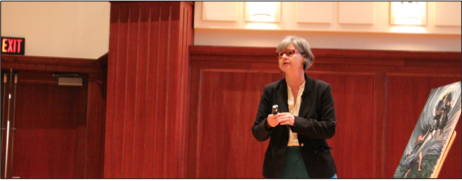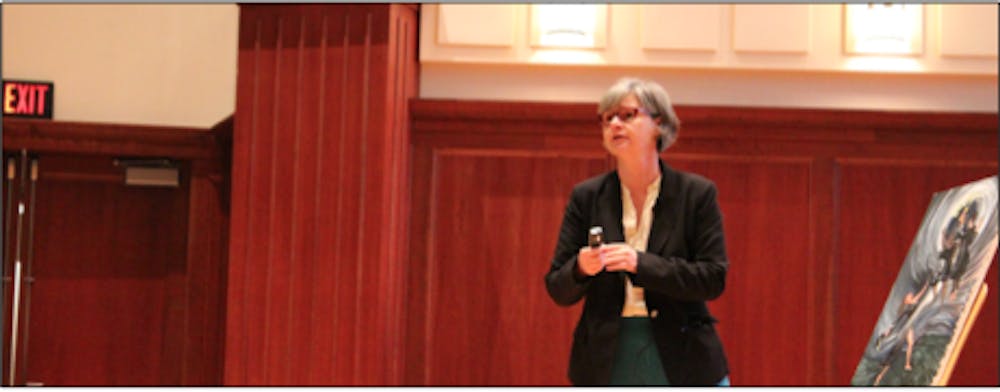By Jennifer Goetz
Staff Writer

People often put their lives in the hands of doctors — but health activist Ileana Balcu cautions that individuals should also look into additional sources for healthcare information. She presented her own personal story and the stories of other doctors or patients that agree with the use of online communication in Mayo Concert Hall on Friday, Sept.18.
“Have you ever gone on the internet and brought an article to your doctor?” Balcu said, a health program manager for IT systems. No hands shot up to that question. Balcu encouraged the audience to consider that approach the next time they have a question for their doctors about something they’ve found online. The generation today has the power and technology to change the healthcare industry for the better, according to Balcu. Healthcare needs to be "digital, clear, fast and fluid."
She provides examples of patients who have used the Internet to explore their options. One of them is a patient named Dave, who learned from doctors that he had 24 weeks to live. Taking matters into his own hands, he went online and discovered a treatment that ended up keeping him alive. E-patients are engaged, equipped, empowered and enabled, according to Balcu.
Online doctors could also be a popular feature of future healthcare. Balcu draws attention to doctors who have already embraced the internet and other forms of social media. Massachusetts Dr. Danny Sands feels that patients and doctors need to be on the same page, and “we all need to know the same thing.” Sports medicine orthopedist Dr. Howard Luks utilizes social media to connect with his patients.
Balcu told her own personal tragedy when she lost her baby from preeclampsia. She was diligent throughout her pregnancy, but the lack of communication between the doctor and the lab with test results was the problem. However, Balcu is not blaming anyone for the loss of her baby.
“What I felt cheated on was... I kept asking if there was anything I can do. And they said there’s nothing you could do.”
She went on to become the director of IT at the Preeclampsia Foundation, where she was introduced to a patient support system with women who had gone through the same condition.
Balcu wants patients to know there is something they can do and that is to have a network, which doctors should have, too. Patients need to go to family and friends for emotional support and advice, to go doctors for a diagnosis and they need to turn to the internet to see what they can learn for themselves.
“Doctors need a safety net, and so do patients,” Balcu said. Individuals should keep track of their own medical records, know their information and “distinguish good from garbage.”
Balcu had another child who is now a healthy 10-year-old boy. She even shared a video displaying her son’s musical talents.
“That kid was worth every blood pressure I ever took,” Balcu said, “With him, I did everything I could.” During this pregnancy, she took it upon herself to look into her options and explore other opinions.
“Doctors are doctors and need to tell us things,” says Balcu — even if they are unpleasant. But still, Balcu believes patients should speak up.
“You need to ask questions,” Balcu said. "Why did (he or she) make that decision? Make your doctor think.”







